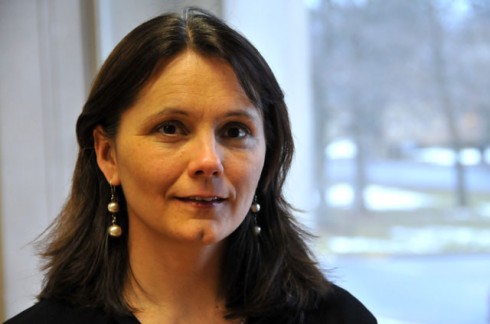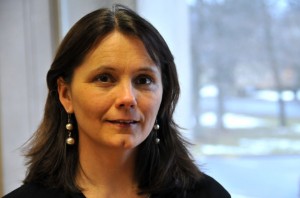Kolcio Attends White House Event, Presents Research in Ukraine


Katja Kolcio, associate professor of dance, associate professor of environmental studies, was invited to attend White House Ethnic Day on June 2. The event brought together about 160 leaders from various ethnic communities for a discussion on immigration reform and foreign policy. The foreign policy discussion dealt predominantly with Ukraine, Kolcio’s area of interest.
The event was attended by White House representatives including Valerie Jarrett, senior advisor to President Barack Obama; Cecilia Munoz, director of the White House Foreign Domestic Council; Felicia Escobar, special assistant to the president for immigration policy; Manar Waheed, deputy director for immigration policy; Michael Carpenter, special advisor to the vice president for Europe and Eurasia; and Celeste Wallander, special assistant to the president and senior director, Russia and Central Asia, National Security Council.
The discussion was preceded by a reception on Capitol Hill on June 1 with members of Congress.
In June and July, Kolcio will travel to Ukraine to present her research on somatic theory—which is premised on body-mind integration—and lead workshops in somatic practice geared toward the issues of displacement and PTSD. She has been invited by three different non-profit groups of mental health professionals and specialists in PTSD, a combination of psychiatrists, therapists, social workers and clergy, who assembled to address the increasing incidence of trauma and displacement due to the unexpected Russian invasion and annexation of Crimea and subsequent fighting on the border between Ukaine and Russia.
Learn more about Kolcio in this video.

